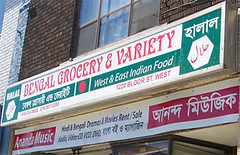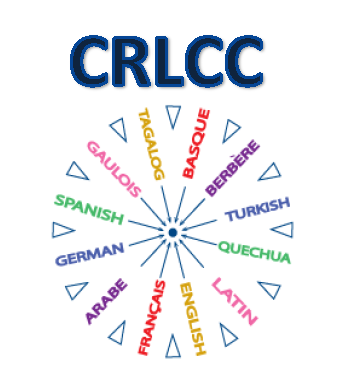Mission
Language contact occurs when individuals or groups acquire the language and culture of other groups or when they interact through the language of members of other groups. Among the topics that fall within the purview of language contact one can mention: second or multiple language acquisition, societal or individual bilingualism, minority language maintenance or loss, bilingual education, bilingualism and cognition, the role of language and cultural contact in language change, pidgin and Creole genesis, the linguistic and cultural dimensions of translation, dialect mixture and inter-group relationships in bilingual or multilingual settings. Thus the study of language contact can be approached from the perspective of several complementary disciplines (e.g., linguistics, sociology, demography, psychology, political science, human geography, history).
The Centre for Research on Language and Culture Contact (CRLCC) brings together the research activities of the faculty members and students of York University who investigate various aspects of language contact at both societal and individual levels (see the descriptions of the research of the CRLCC members on our web site). The CRLCC members conduct their research in a variety of settings, located in Toronto, Ontario, other Canadian provinces and other countries throughout the world.
The CRLCC promotes research of interest to various programs of Glendon College and/or York University:
- MA in Translation;
- MA and PhD in Linguistics and Applied Linguistics;
- MA and PhD in Education: Language, Culture and Teaching;
- MA in French Studies;
- BA in Linguistics and Language Studies/Glendon College;
- BA in Linguistics/Faculty of Liberal Arts and Professional Studies;
- BA in Translation/Glendon College;
- BA in English Studies/Glendon College;
- BA in French Studies/Glendon College;
- BA in French Studies/Faculty of Liberal Arts and Professional Studies;
- BA in Spanish Studies/Glendon College;
- Program in Italian Studies/Faculty of Liberal Arts and Professional Studies;
- Program in German Studies/Faculty of Liberal Arts and Professional Studies;
- Faculty of Education;
- Faculty of Graduate Studies;
and to several of York University’s organized research units, research groups or chairs:
- The Harriet Tubman Institute for Research on the Global Migrations of African Peoples;
- The City Institute at York University;
- Centre for Research on Latin America and the Carribean;
- The Mariano A. Elia chair in Italian Canadian Studies;
In fulfilling its mandate, the CRLCC relies on the expertise of a network of Associate Members, who are for the most part leading scholars in their fields. Associate Members may be invited to give lectures or courses and are entitled to have their publications posted on the YorkSpace digital repository.
A noteworthy component of the CRLCC is the Research Group on Translation and Transcultural Contact (RGTTC). Its mission is the study of situations of contact between languages, cultures and societies today and in historical contexts.
The concept of translation and the study of actual outcomes of the activity of translation include but are not limited to interlinguistic or intertextual contact as we have been accustomed us to see them by the tradition.
They involve all forms of cultural representations transformed by way of direct or indirect loan procedures or through processes of hybridization, métissage and creolization or, contrariwise, ossified because of institutional factors.
This widest array of forms and situations is logically related to the varieties of semantic networks that convey the notion of ‘translation’ across cultures and languages, in their historical specificity.
The Group provides a forum for researchers interested in all kinds of culture contacts resulting in translations. Current research by members of the Group covers Latin America, Europe, Africa, the Indian Ocean, Asia as well as Canada including northern territories. Approaches build on several disciplines and areas of knowledge development: linguistics, literary studies, cultural studies, history and sociology, cognitive psychology, ethics and philosophy.












